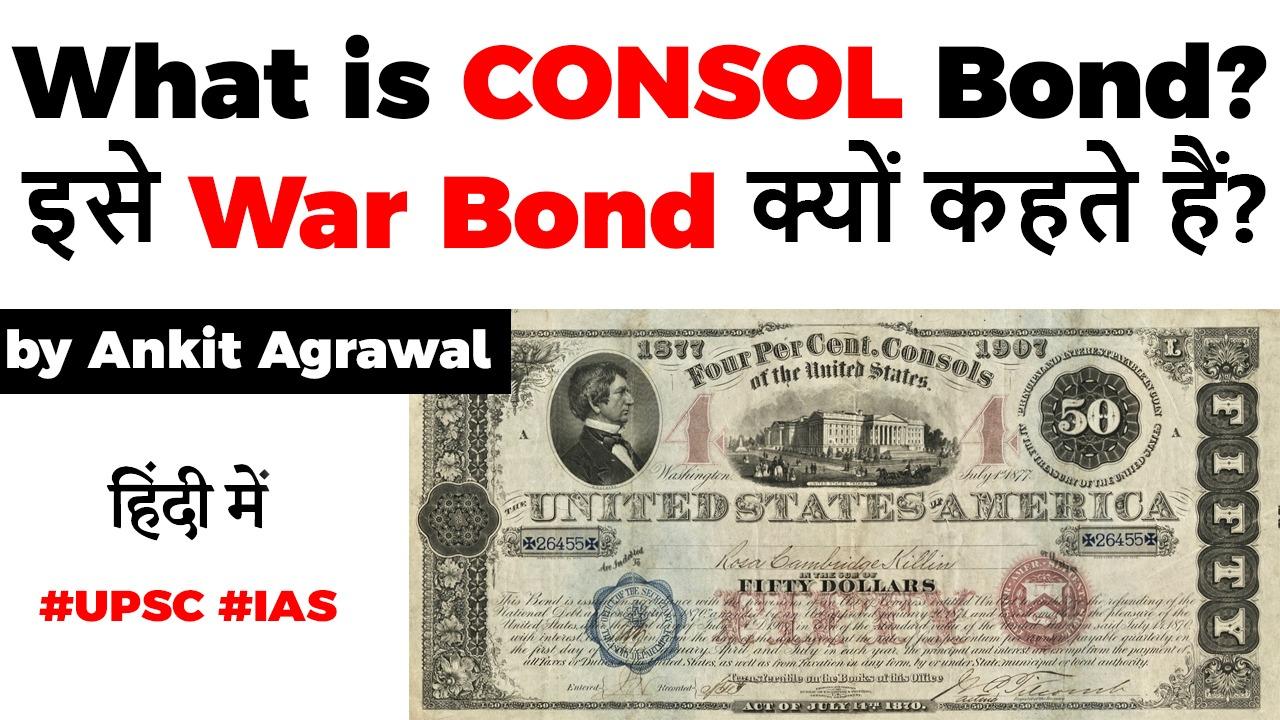Table of Contents
WHAT IS A BOND?
- A bond is a fixed income instrument that represents a loan made by an investor to a borrower.

- Government bonds are referred as:-
- G-secs in India
- Treasury in the US
- Gilts in the UK
- Government issue bonds to fund roads, schools, dams or other infrastructure projects.
WHAT IS PERPETUAL BOND?
- It is a fixed income security with no maturity date.
- This type of bond is often considered a type of equity, rather than debt.
- One major drawback to these types of bonds is that they are not redeemable.
- However, the major benefit of them is that they pay a steady stream of interest payments forever.
- There are very few entities that are safe enough for investors to invest in a bond where the principal will never be repaid.
WHY IT IS RELATED TO WAR?
- Some of the notable perpetual bonds in existence are those that were issued by the British Treasury for-
- World War I & South Sea Bubble of 1720
CONSOL BOND DURING WW1
- Issued in 1917 by UK government to raise more money to finance the ongoing cost of war.
- The bonds paid out an interest of 5%.
- Citizens were asked to invest in these bonds with a message that-
- Their investment will help fight the country, akin to a soldier’s fight but with no risk to their lives.


- Due to Covid-19 pandemic and consequential national lockdown,
- The Indian economy is going through a serious crisis which is a war like situation.
- Thus a large stimulus needs to be introduced by the government to pull back the economy.
- An introduction of a Consol Bond is one of the solutions for the government to fund the stimulus.
WAY FORWARD
- It will offer risk free and fixed rate of return to investment for retail investors.
- Tax rebates can also be an incentive for investors.
- The government can consider a phased redemption of these bonds after the crisis is over.
- It makes citizens active participants in the fight against slowdown caused by pandemic.
Latest Burning Issues | Free PDF






















 WhatsApp
WhatsApp